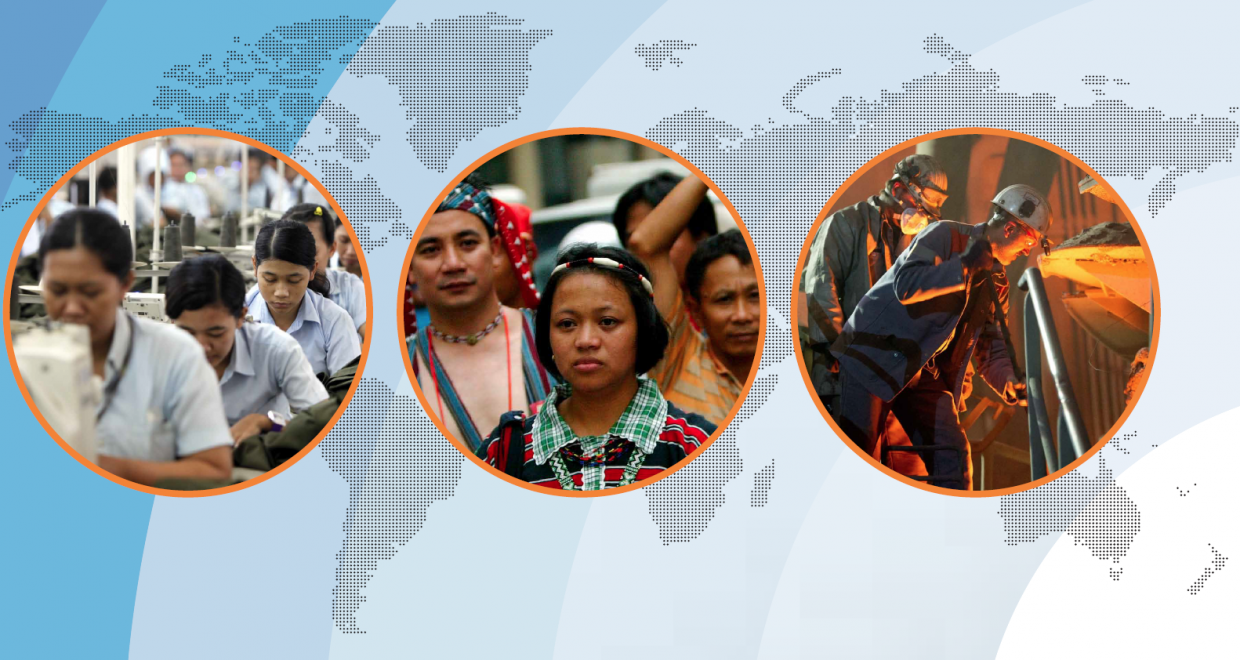The need for sustainable exit strategies in land-related projects
When land-related projects fail or stall, local communities are often left with little to rely on and risk being left worse off than before. Despite this, such risks are rarely addressed by finance institutions and investors. In its recently launched report No business, no rights (November 2017), Swedwatch illustrates how local communities were affected when the Addax Bioenergy project in Sierra Leone stalled. The report highlights the impacts of the Swedish development finance institution (DFI) Swedfund and its Dutch equivalent FMO’s exit from the project. The DFIs failed to conduct adequate human rights due diligence to ensure that the rights of local communities were respected.
The preface in No business, no rights is authored by the UN Special Rapporteur on the Right to Food, Hilal Elver. She confirms the high risks connected to land investments and describes a reality where promises made to local communities for jobs and better lives are rarely fulfilled. On the contrary, the rights holders often lose what little they previously had. In the preface, Elver calls for responsible exit strategies among owners in projects such as Addax Bioenergy, especially in countries with widespread poverty and food insecurity.
In 2011, Swedfund and FMO became minority shareholders of the company Addax Bioenergy. The project represented the biggest agriculture investment ever undertaken in Sierra Leone, one of the poorest countries in the world. The plan was to lease large areas of land, from the beginning 57,000 ha, to produce ethanol for the European market and generate electricity for the national power grid in Sierra Leone. The project created over 3,000 new jobs in a remote area, where 95 percent of the households depended on subsistence farming and where formal employment was almost non-existent.
To mitigate food security risks linked to the loss of access to land, a support program to help farmers move from traditional to mechanized farming techniques was established. Despite high ambitions, the Addax Bioenergy project faced a number of challenges, leading to severe financial constraints. Therefore, the project was drastically downscaled in 2015 for the coming 18 months, during which the DFIs sold their shares and pulled out of the project.
During the scale-down, the impacts on local communities were widespread. A majority of the employees lost their jobs. Diminished access to natural resources due to the project, meant there was little for the rights holders to fall back on in order to maintain their livelihoods. Children in affected communities were forced to leave school during the scale-down, as the costs for their school fees could not be carried by the families. Older women and land users stopped receiving help from other community members when jobs were lost. Most of the food security support programs were canceled, despite concerns from affected communities over not having enough to eat.
FMO and Swedfund were provided with information alarming the serious human rights impacts and risks. However, none of them conducted human rights due diligence (HRDD) in line with the UN Guiding Principles on Business and Human Rights before exiting the Addax Bioenergy project. Nor did the DFIs perform any HRDD regarding which the new majority owner of the project would be, or whether that stakeholder would fulfil the commitments and promises made to the local communities. Following the exit of Swedfund and FMO, transparency around the project and dialogue with local communities deteriorated significantly, which made it harder to hold those responsible for the project accountable for its impacts.
In December 2016, operations within the Addax project resumed under the new majority shareholder Sunbird Bioenergy, and many employees were re-instated. However, during Swedwatch’s field study in the area in March 2017, communities reported serious impacts on access to and quality of drinking water due to contamination, allegedly caused by the resumed operations. Furthermore, new elements of the project were not preceded by consultations with local communities. If any risk assessments have been carried out by the new owner, they have not been made public.
The lack of consultation with local communities is of serious concern. The situation is further exacerbated by shrinking civil space in the country. In 2016, human rights defenders in Sierra Leone working on issues related to business and land rights reported an increase in threats and attacks.
The report concludes that Swedfund and FMO, together with other involved parties, should assess how they could best assist in the remediation process to compensate local communities for impacts caused by the stalling of the Addax Bioenergy project, and in preventing and mitigating impacts related to the resumed operations. Above all, the lesson learnt from the Addax Bioenergy project is that investors’ risk assessments and mitigation measures need to include an exit perspective. Such strategies must take in to account human rights risks in case of an unexpected project failure, and they need to be included in budget and policy from the inception phase of investments in a project.
In dialogue post launch of the report, representatives of Swedfund and FMO have recognized Swedwatch’s recommendations and admitted shortcomings in their strategies while exiting the Addax Bioenergy project. According to official statements, Swedfund has now initiated procedures to strengthen its human rights due diligence, including at exits. These are welcome steps and should be followed also by other DFIs since adequate due diligence processes and exit strategies are generally lacking.
This post is authored by Kalle Bergbom, Head of Resarch at Swedwatch. Swedwatch is an independent, non-profit research organisation. Swedwatch investigates the extent to which companies, investors and authorities are taking responsibility for human rights and the environment. The focus of Swedwatch’s work is on countries where there is a high risk of rights violations and negative impacts on the environment, and to give a voice to the people affected. The aim is to reduce injustices and work to bring about positive development.






